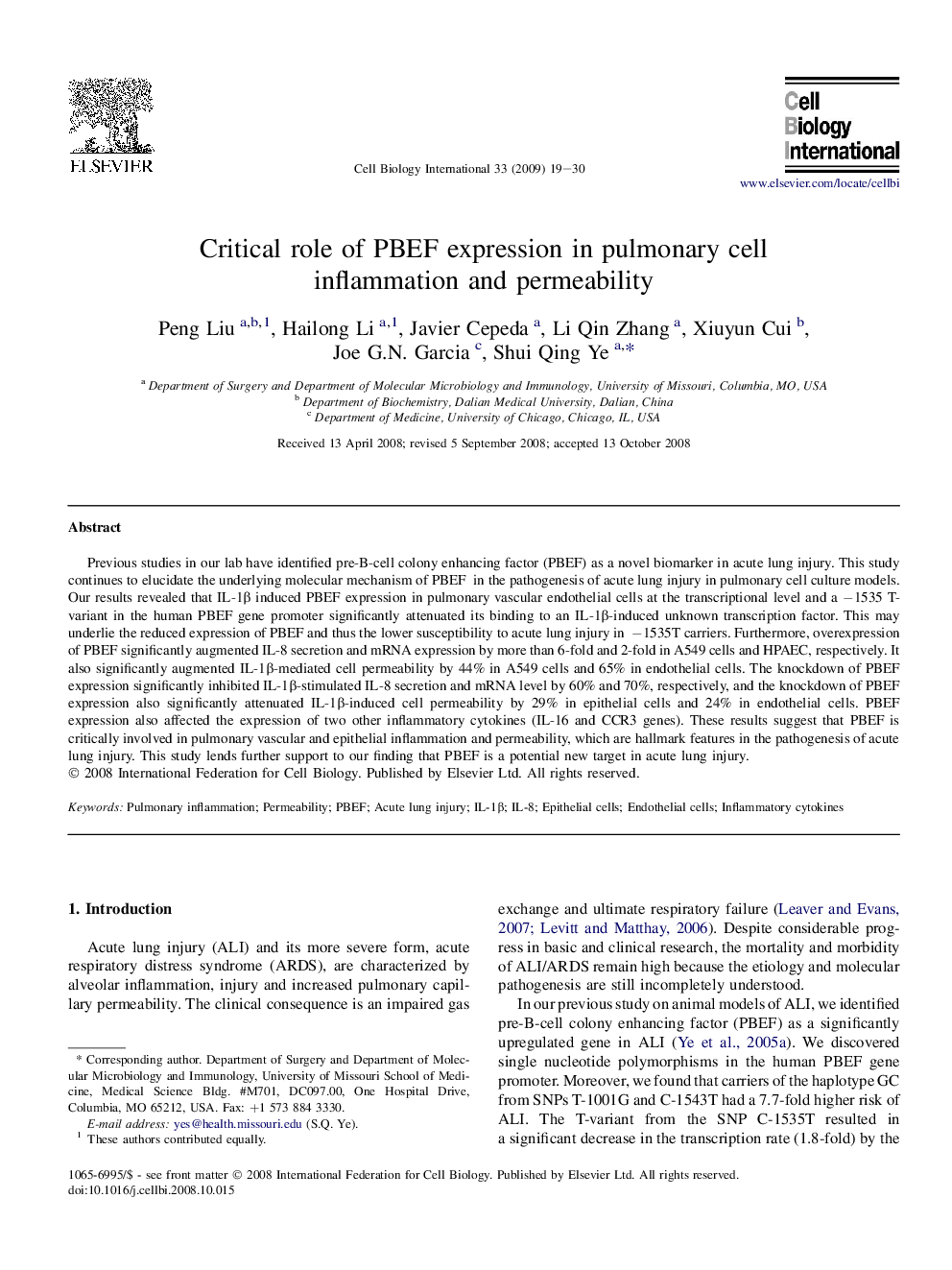| Article ID | Journal | Published Year | Pages | File Type |
|---|---|---|---|---|
| 2067088 | Cell Biology International | 2009 | 12 Pages |
Abstract
Previous studies in our lab have identified pre-B-cell colony enhancing factor (PBEF) as a novel biomarker in acute lung injury. This study continues to elucidate the underlying molecular mechanism of PBEF in the pathogenesis of acute lung injury in pulmonary cell culture models. Our results revealed that IL-1β induced PBEF expression in pulmonary vascular endothelial cells at the transcriptional level and a â1535 T-variant in the human PBEF gene promoter significantly attenuated its binding to an IL-1β-induced unknown transcription factor. This may underlie the reduced expression of PBEF and thus the lower susceptibility to acute lung injury in â1535T carriers. Furthermore, overexpression of PBEF significantly augmented IL-8 secretion and mRNA expression by more than 6-fold and 2-fold in A549 cells and HPAEC, respectively. It also significantly augmented IL-1β-mediated cell permeability by 44% in A549 cells and 65% in endothelial cells. The knockdown of PBEF expression significantly inhibited IL-1β-stimulated IL-8 secretion and mRNA level by 60% and 70%, respectively, and the knockdown of PBEF expression also significantly attenuated IL-1β-induced cell permeability by 29% in epithelial cells and 24% in endothelial cells. PBEF expression also affected the expression of two other inflammatory cytokines (IL-16 and CCR3 genes). These results suggest that PBEF is critically involved in pulmonary vascular and epithelial inflammation and permeability, which are hallmark features in the pathogenesis of acute lung injury. This study lends further support to our finding that PBEF is a potential new target in acute lung injury.
Keywords
Related Topics
Life Sciences
Biochemistry, Genetics and Molecular Biology
Biophysics
Authors
Peng Liu, Hailong Li, Javier Cepeda, Li Qin Zhang, Xiuyun Cui, Joe G.N. Garcia, Shui Qing Ye,
